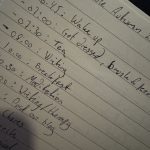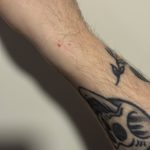When a story of abuse becomes public, the first question is always:
“Why did they stay?”
It is a question that sounds curious, but what it really asks is,
“Could that happen to me?”
We ask it to keep distance.
But the real answer pulls us closer.
The thing you know from up close is that abuse does not begin with the intent to harm, it starts as a rescue mission.
People stay because abuse rarely begins as textbook “abuse”. It begins as healing, as help, as shared pain.
When someone alternates between affection and cruelty, your nervous system grabs onto the affection — it becomes the proof that the cruelty was a misunderstanding.
The person hurting them once said, “I understand you like no one else” or “You are the only person who understands me.”
Because leaving feels like abandoning the only person who “gets” them, or carrying the burden of being another person to leave them unheard of you go.
Survival wiring is stronger than logic.
And when you add trauma, ADHD, or any neurodivergence to that mix, the attachment chemicals become stronger. It can take years to tell the difference between “we are helping each other heal” and “one of us is quietly breaking.”
By the time the second truth becomes visible, the person being harmed has already been conditioned to believe they are the only one who can hold the other together. The empathy that makes you a good friend, a good partner, a good creator — it also makes you a perfect target for someone who mistakes care for control.
That is not stupidity or weakness.
That is the biology of attachment doing what it was designed to do: keep the connection alive, even when it is killing you.
So if you want to ask a question that helps, ask this one instead:
“Why was s/he made to feel responsible for her/his healing?”
That is the pattern that needs to break.
Because until we learn to separate empathy from obligation, the cycle will keep repeating — in homes, in collaborations, in creative circles that start out as safe spaces and turn into extraction fields.
If you are reading this and something in your chest goes still — if you recognise the shape of yourself in these words — there are places that can hold you.
You do not have to stay, and you do not have to leave alone.
116 006 is the national helpline for violence and abuse (within Norway). You can chat anonymously and find the help that you need ♡

